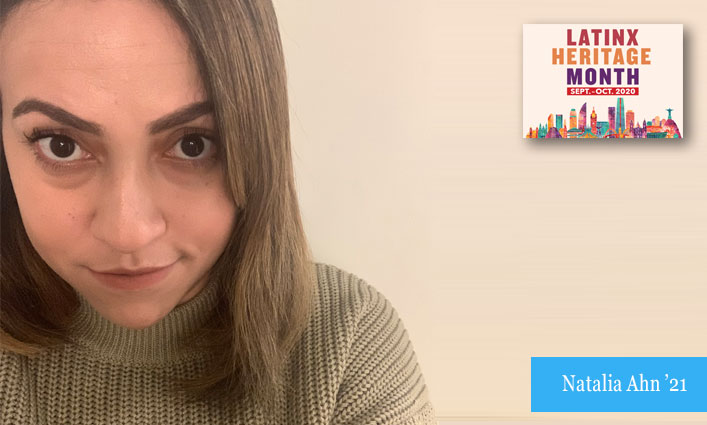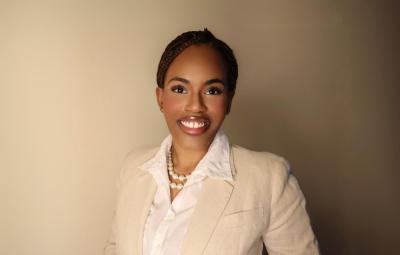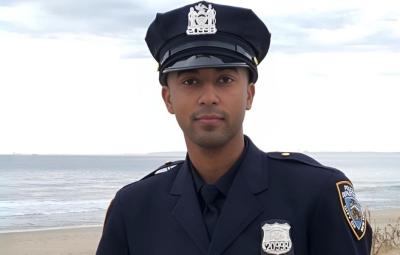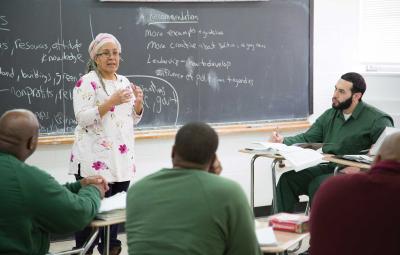
Like many of her John Jay peers, alumna and graduate student Natalia Ahn ’21 has spent the last few months working to help members of her community make it through the coronavirus pandemic. “Since March, I’ve been volunteering as an immigration paralegal, helping victims of domestic violence in the immigrant Brazilian and Latinx community,” says Ahn, who recently earned her bachelor’s degree in Criminal Justice from John Jay and is now pursuing a master’s degree in Human Rights from the College. “The people I’m helping are going through a lot right now. Many are immigrants with no access to information, education, or a safe place to go to escape the abuse. Helping them is the right thing to do.”
Beyond her work as an immigration paralegal, Ahn is also a writer, a wife, mother of a two-year-old daughter, and she’s conducting research at John Jay. As a winner of the 2020-2021 Office for Student Research and Creativity (OSRC) Scholarship, Ahn is working with Professor María Juila Rossi, Ph.D., to explore the relationship between motherhood and being a college student. “This research might be very helpful to the John Jay community. There are a lot of student-mothers, like me, who at times feel isolated on their College journey. I think it will be good for them to see they’re not alone. There are other student-mothers at the College who have similar experiences and feelings.” We chatted with Ahn to learn more about her life before John Jay, how she’s helping victims of domestic violence, and what she hopes to learn through her research project.
“I’ve always been hopeful and believe that when people stand up for what’s right, things can change.” —Natalia Ahn
Finding John Jay
Growing up in her native Brazil, Ahn was a familiar face on the protest scene, advocating for human rights and women’s rights. “I’ve always been a social justice advocate. I’ve even protested in other parts of the world. Anytime I visit family in Spain or Portugal, if there’s a protest and it’s something I believe in, I am there,” says Ahn, who identifies as Latinx and is fluent in English, Spanish and Portuguese. “I’ve always been hopeful and believe that when people stand up for what’s right, things can change.” The injustices she advocated to end, led Ahn to study law in Brazil, but when she met her husband and moved to the U.S., she had to start her college experience over again. “I enrolled at BMCC [Borough of Manhattan Community College] where I was part of the CUNY Justice Academy. Through the program, I studied Criminal Justice for two years at BMCC and then finished my bachelor’s degree in Criminal Justice at John Jay,” she says. Now pursuing her master’s degree in Human Rights, Ahn credits her professors at the College with guiding her on her journey. “My goal is to finish the master’s program next Spring 2021, and then I want to pursue my Ph.D. and a law degree,” she says. “I want to be a college professor and possibly work within the City University of New York [CUNY] system. I also see myself professionally helping women as an immigration attorney.”

Helping Abuse Victims
The desire to work with and help victims of domestic violence, especially in the immigrant Brazilian and Latinx communities across the U.S., is deeply personal for Ahn. “In my life, I have known women who have been physically abused. It’s a horrible, traumatic experience to go through,” she says. “In the U.S., we know that one in three women have experienced some form of physical violence at the hands of their partner. And, we also know that during the pandemic, domestic violence rates have gone up because victims are stuck at home with their abusers.” Wanting to help, Ahn has been working with the Brazilian non-profit organization Garra, where she’s giving domestic violence victims access to the tools and resources they need to leave an abusive situation. “For many of the women I work with, they don’t have access to the information that can help them get out of these abusive relationships. They aren’t aware of the resources available to them. For example, if you are a U.S. citizen and are going through a domestic violence situation, you can get help from government programs like SNAP [Supplemental Nutrition Assistance Program], public housing, and other types of benefits, but immigrants don’t have access to these kinds of benefits,” she explains, noting that immigrants also have a fear of deportation. “This makes it harder for them to restart their life. So, what I do, is speak with them in their native language. I help them fill out the necessary paperwork and applications so that they can get the help they need, whether it’s a work permit or placement at a safe shelter. My goal is to help empower these women. They are survivors and I want them to go on and live happy, safe lives.”
“It’s very easy for a mom going to college to feel alone because she’s not a traditional college student. Our group can feel unseen, unheard, and at times marginalized.” —Natalia Ahn
Connecting Mothers Through Research
At John Jay, Ahn is hoping to uplift student-mothers at the College by creating a greater sense of community. Under the guidance of Professor Rossi, Ahn will examine how mothers who are college students feel about the college experience. Through interviews with student-mothers, she wants to learn what obstacles they have faced, how they’re balancing college work along with responsibilities at home, and ultimately, she’s trying to find how to better connect the two identities in a healthy, empowering way. “It’s very easy for a mom going to college to feel alone because she’s not a traditional college student. Our group can feel unseen, unheard, and at times marginalized,” says Ahn, who will be interviewing students and reviewing previous research on the topic over the course of the academic year. “You cannot talk about motherhood without talking about social justice and equality. There is a stigma attached to student-mothers. Many people think, ‘Oh, they did not plan to have a child,’ or ‘They must come from a background that is not very helpful to them.’ What I want to do is change that thinking by highlighting how smart, educated, and capable student-mothers are. I also want to find hope for the community of student-mothers. I want to develop strategies so that they have a better quality of life and a more fulfilling college experience. I want to create a space and a community where women can feel seen, heard, and empowered.”



